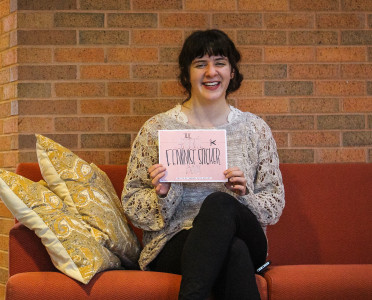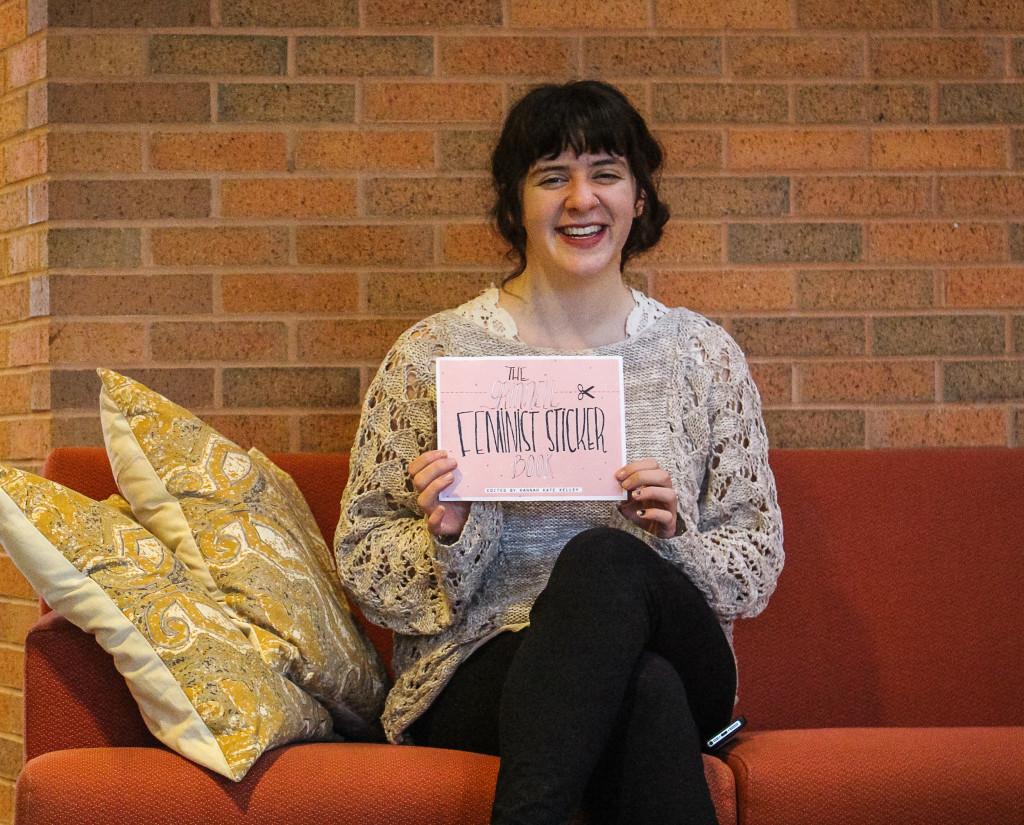Yishi Liang, Editor-in-Chief
liangyis@grinnell.edu
At the beginning of spring semester, Grinnell students can expect to see a very unique publication atop the mailroom tables. Hannah Kelley ’16 is publishing a feminist sticker book with designs by her and 15 other students.

Kelley, a gender, women’s and sexualities studies and studio art double major, got the idea for the book when she discovered the Feminist Sticker Club this past summer. The club was started by Portland-based feminist and cat enthusiast Kelly Hinkle. Artists can submit sticker designs to the club’s website and feminists can sign up for a monthly subscription to the club’s stickers for $2.50. According to the website, artists of chosen designs will have to sign a contract with the club and will receive “a pretty substantial advance on [their] future cut of sales.”
“I got the idea from somewhere else but I wanted to make it Grinnell-based. And I wasn’t just going to make the sticker book by myself because that’s not very feminist. You have to have other people,” Kelley said.
Kelley held two design workshops in Loose Lounge open to all students. At the events, she displayed a few of her own designs as examples and popular feminist topics and themes as inspiration.
“There are unicorns and cats. There are ones that deal with intersectionality, sexuality, of course, race … privilege, stuff like that. And they’re all really colorful,” Kelley said of the stickers.
In total, the book will have 16 pages, with each artist having a page. Initially, Kelley had been planning to simply accept whatever designs students created. However, given the complexity and nuances in some of the topics being covered, she ran into a few occasions where she had to communicate with the students about the content and message in their designs. One student was open to Kelley’s reservation and changed the initial design while one had a justification and stood firm in their original design. Ultimately, Kelley was looking to change other students’ work as little as possible and thus, some stickers will have descriptions to explain and contextualize the design.
“Not everyone [will have text accompanying it], just the ones I thought needed explanations,” Kelley said.
Many times a publication’s relevance is short-lived. Kelley does not want that to be the fate of her sticker book. Given the popularity of stickers on campus, she wants the designs in her book to grace as much of campus as possible.
“I want the stickers to go everywhere on campus … bathrooms, or on your own thing like laptop covers or water bottles or anything like that. That’s what I want. I want it to go everywhere.”



















































